Between 3 Worlds: Navigating Cultural Differences in Academic Spaces
Since moving to France, I’ve often found myself reflecting on how the country sits culturally between Korea and the United States, two places where I’ve spent a significant part of my life. I’ve attended public schools in both countries, and each has left a distinct impression on me, especially when it comes to classroom behavior. These experiences have shaped the way I perceive education, authority, and even the subtle social pressures that dictate how students engage in an academic setting.
In the United States, asking questions in class or approaching the professor after a lecture is common and even encouraged. When I was in kindergarten in the U.S., I never thought twice about raising my hand to ask a question. It was just part of the learning process, and no one judged you for it. Teachers often responded with enthusiasm, reinforcing the idea that curiosity was not only accepted but celebrated. Everyone understood that learning was an interactive process, and asking questions wasn’t a sign of weakness but rather an indication of engagement. It was normal to see students eagerly participating in discussions, challenging ideas, and seeking clarification without hesitation.
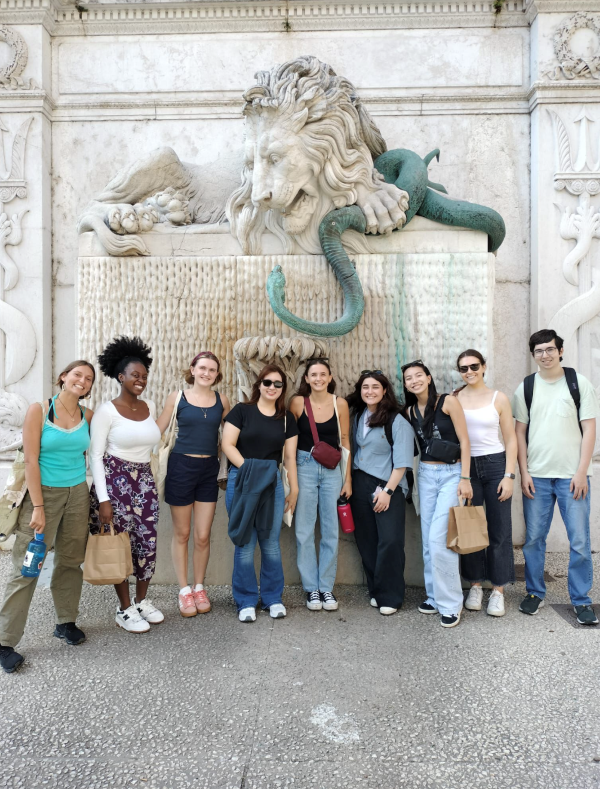
Family pic in front of Fontaine au lion
In Korea, however, the experience was entirely different. When I transferred to a public school there, I quickly learned that asking questions was seen as disruptive or, worse, an indication of ignorance. If I raised my hand to clarify something, classmates would give me odd looks, and later, they would comment that I had embarrassed myself. “You’ll look dumb if you ask too many questions,” they would say, and that mindset seemed deeply ingrained in the classroom culture. The emphasis was placed on silently absorbing information, not openly engaging with it. Even if students didn’t fully understand a concept, many would rather struggle in silence or seek help privately than risk being judged by their peers. This created a learning environment where appearing competent was more important than actually mastering the material.
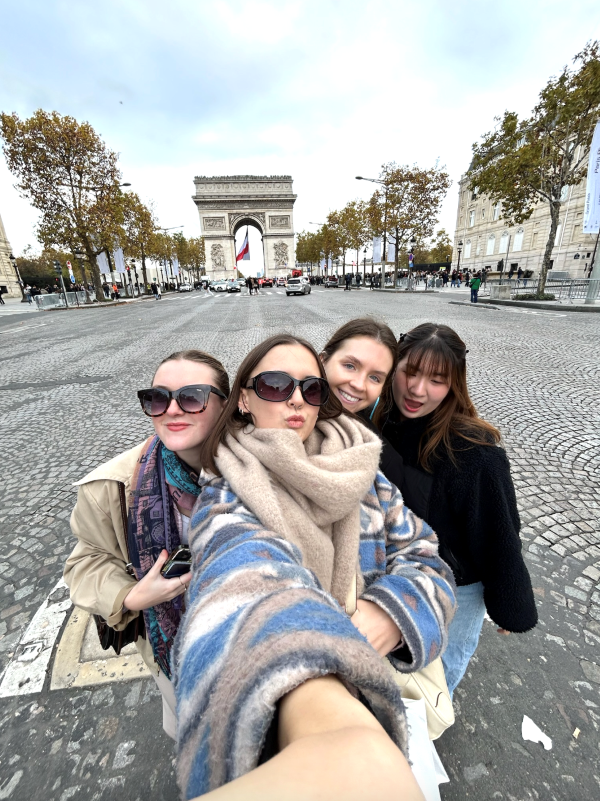
The Arc of Triomphe!
When sitting in French lecture halls, I can’t help but notice echoes of that Korean experience. In the lectures I’ve attended, the only students raising their hands or approaching the professor afterward were foreign students from Canada or Australia, or it was us—students from the United States. The silence in the classroom feels eerily familiar, reminiscent of the Korean emphasis on maintaining an image of understanding rather than openly engaging in discussion.
While the French education system is widely respected for its rigor, the reluctance of students to ask questions leaves me questioning whether this approach fosters genuine comprehension or simply reinforces the pressure to appear knowledgeable. It seems there’s an unspoken rule that silence signifies competence and breaking that silence might be seen as an admission of inadequacy—something I’ve struggled to navigate.
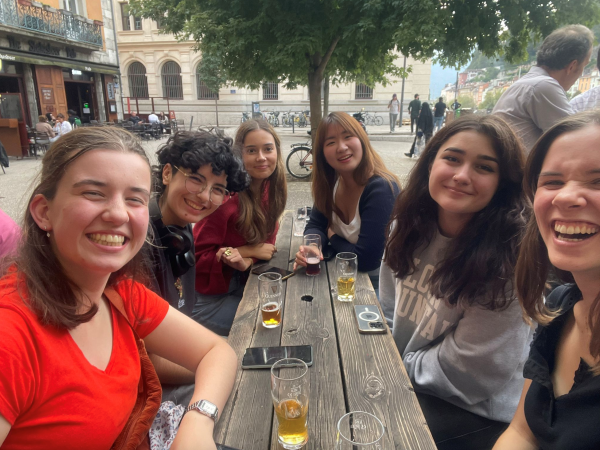
Irish Beer Pub in Grenoble
These behavioral differences seem to stem from the differences in cultural attitudes toward education. In the United States, asking questions is often seen as part of a competitive academic culture. Engaged students who actively participate in discussions and show an interest in the material are perceived as ambitious and driven, qualities that can contribute to higher grades and stronger relationships with professors. Participation is often built into grading systems, reinforcing the idea that speaking up and engaging with the material is essential to success. Professors expect and encourage students to challenge ideas, voice opinions, and seek clarification, reinforcing the belief that intellectual curiosity is a strength rather than a vulnerability.
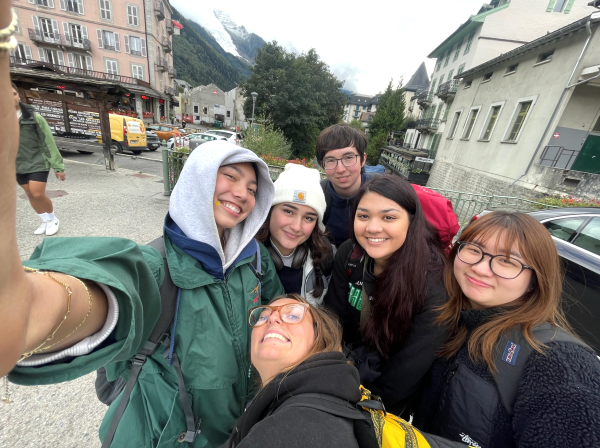
Chamonix trip
France is a highly unicultural country, unlike the U.S., which prides itself on multiculturalism. In this way, France is more like Korea. As a non-Asian in Korea, you would get looks, and you would be asked questions that you may think are rude. Conversely, here in Grenoble, I am treated that way. In Grenoble, there are few Asians in general. I didn’t see another Asian person until my fourth day in the city. It wasn’t until my third week that I overheard someone speaking Korean. This scarcity likely magnifies my “Asianness” in the eyes of others and makes me stand out in ways I didn’t anticipate. In Korea, I was just another Korean, blending into the majority, but here in France, my foreignness is much more pronounced.
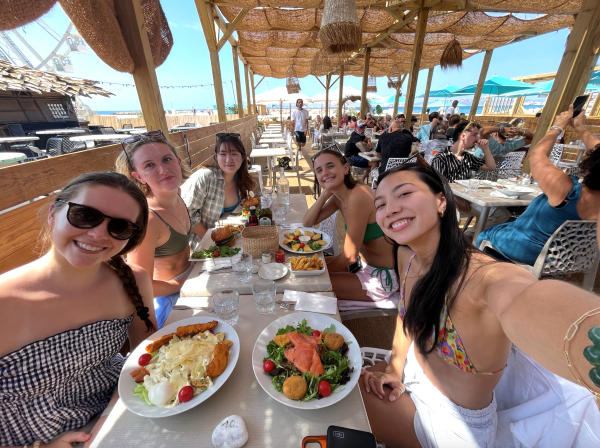
Our beach trip to Marseille
Whether it’s the way people glance at me or the subtle curiosity in their expressions, it’s a constant reminder that my presence is, in some way, unusual in this environment. It’s a strange, sometimes isolating feeling, but it has also given me a new perspective on what it means to belong. Learning such cultural differences and learning to adapt have made my study abroad experience special, as it pushed me to step outside my comfort zone, engage with new social dynamics, and find confidence in my identity despite the unfamiliarity surrounding me.
This post was written by Alina Cho, a CEA CAPA Alumni Ambassador from Boston University, who studied abroad in Grenoble, France.








